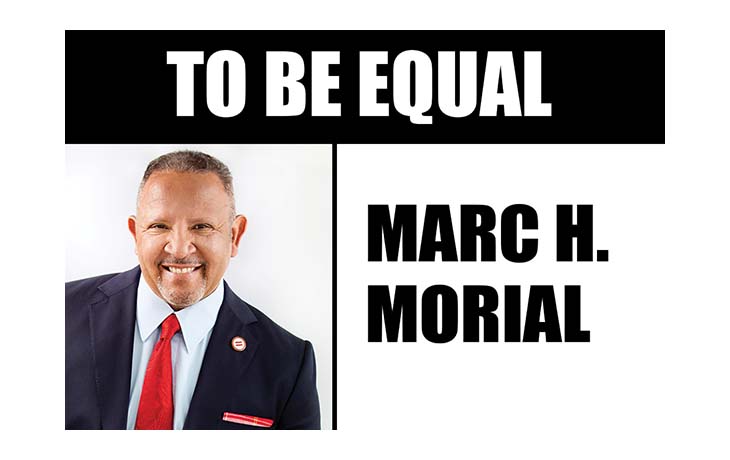Kimberlee Crenshaw
“The freedom to learn is the freedom to live. We cannot survive our current political moment or unlock the promise of our future without the tools to understand and make sense of our past. And that’s precisely why those opposing democracy and equality are trying to take away our books, our concepts, and our knowledge. Ignorance about our past is the Achilles heel of democracy. And we can’t save this democracy without confronting its weakest link. That’s why we have to fight for the freedom to learn.”—Kimberlee Crenshaw
When the deadly COVID-19 pandemic began sweeping across the United States in 2020, President Donald Trump infamously made the mind-boggling assertion, “If we stop testing right now, we’d have very few cases, if any.”
As the legacy of racism, segregation, and discrimination continues to drive gaps in opportunity, achievement, and justice under the law, the Trump administration remains committed to solving problems it doesn’t want to confront by pretending they don’t exist.

The administration’s frenzied assault on American history, outlined in the Orwellian executive order, Restoring Truth and Sanity to American History,” is a key tactic in its broad agenda to erode democracy, entrench inequities, and reinforce injustice,
As part of the Freedom to Learn coalition, the National Urban League is sounding the alarm that the attempted mass erasure of Black history and culture is a key pre-condition for our ongoing anti-democratic slide.
Sunday marks the beginning of the #HandsOffOurHistory / Freedom To Learn National Week of Action, a mass mobilization in opposition to the extremist campaign to suppress history and wipe out decades of anti-racist, pro-equality progress.
On Wednesday, which marks the first 100 days of the second Trump administration, I will take part in a virtual event, Beyond The First 100 Days: Centering Racial Justice and Black History in Our Fight for Democracy. In partnership with the Association for the Study of African American Life and History, the conversation will provide an assessment of what the first 100 days has meant for the fight for racial justice, the preservation of Black history and the defense of a multiracial democracy. I will be joined by Kimberlé Crenshaw, Co-Founder and President of the African American Policy Forum; Kaye Wise Whitehead, founding director of The Karson Institute for Race, Peace, and Social Justice; Shavon Arline-Bradley, President and CEO of the Nation Council of Negro Women; Barbara Arnwine, resident and founder of Transformative Justice Coalition; and Melanie Campbell, President and CEO, National Coalition on Black Civic Participation and Convener of the Black Women’s Roundtable.
The week of action culminates Saturday, May 3 in Washington, D.C. with a demonstration in defense of the National Museum of African American History and Culture.
All Americans can join the demonstration by visiting their local museums and libraries, seeking out exhibitions and collections that recognize the contributions of Black Americans and sharing photos of their experiences on social media with the hashtag #HandsOffOurHistory.
Supporters also can sign the Black History Is American History Affirmation.
Now is the time to show the public that we must stand up for civil rights, for the accurate accounting of history, for our books, our voices and our lives.